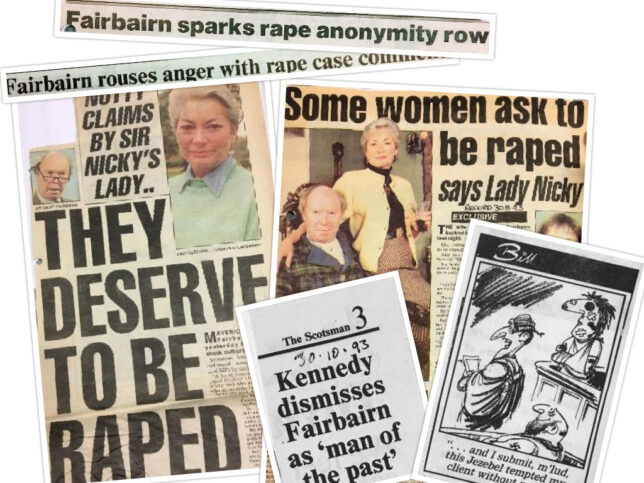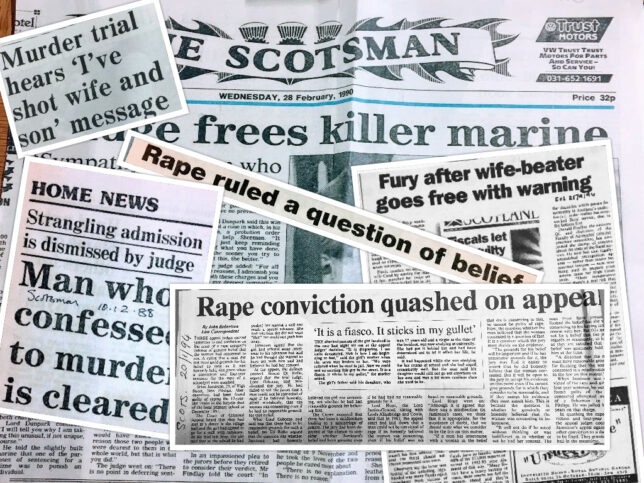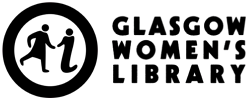Project volunteer Yvonne McFadden, who has conducted oral history interviews and been assisting in cataloguing the Scottish Women’s Aid archive, tells us about the large collection of newspaper stories clipped by Women’s Aid workers throughout the years and what they can tell us about attitudes of the time and the adversity faced by the Women’s Aid movement.
I have been volunteering on the Speaking Out project for about a year now, collecting oral testimony and sorting through the Scottish Women’s Aid archive materials at Glasgow Women’s Library. The idea of being involved with a project that set out to bring women’s voices to the fore greatly appealed to me. As I work through the newspaper collection I often wonder about the Women’s Aid workers and volunteers who clipped them and why they feel it was so important to preserve these articles? What strikes me is not only the vast number of clippings but also the immense variety of subjects covered. I have learned about legal debates in Scotland such as the review of the Not Proven verdict; I’ve sorted through clippings devoted to women who were trailblazers in sport, literature and the arts; and I’ve worked through press responses to the hard-hitting Zero Tolerance campaign in 1992-1994.
Looking through all these headlines and articles has given me some idea of the difficult cultural and political background in which Women’s Aid workers were setting up their groups and providing support to women. Attitudes to abuse within marriage were incredibly problematic. Relationships between men and women were inherently regarded as private and, therefore, not open to public or legal scrutiny. The case of Sir Nicholas Fairbairn’s comments on anonymity in rape trials in October 1994 particularly stood out (Fairbairn described rape victims as ‘tauntresses’). His wife supported him, with both advocating that marriage was a ‘bed and board’ arrangement. As a woman in 2017, their comments both shocked and appalled me but it gives a good insight into some of the attitudes women were working against.

Interviewing women to create an oral history archive has been an amazing experience. I have had the privilege to meet strong, inspirational women. A common thread in the interviews has been how women found a practical expression for their feminism through the Women’s Aid movement. The phrase ‘women helping women’ was frequently mentioned. There were stories about women getting together with other like-minded women and deciding to set up support services for women facing domestic abuse. This was at a time when there was no recourse or alternative and relationships firmly stayed behind closed doors. Many groups started as a phone line and perhaps a room in a community centre. Eventually, they managed to secure funding to pay their workers and run refuges for women and children. The services the groups provided were, and still are, far ranging, from counselling and outreach support to days out for the kids.
Some of the women who I interviewed talked about male privilege and patriarchy in society and recognised that these potentially undermined their ability to make progress towards ending gender-based violence. They were sadly pessimistic about the future, feeling that young women today have even more to contend with in the media and ways to be exploited than were around when Women’s Aid was set up. I think it was this concern with the media and social attitudes that made workers feel it was important to document contemporary attitudes to women and marriage in the press, which in turn is now an excellent resource for people looking back to explore dominant narratives from the time.
Often I left interviews feeling inspired but at the same time a little sad that those sharing their stories felt they had made little progress in the struggle to end gender-based violence. They have achieved so much not only in providing services for women and also through working tirelessly as individuals, and as part of the Women’s Aid movement, to change attitudes towards domestic abuse. All the workers talked about the changing attitudes of the police and social services. It is now fairly accepted that abuse within relationships is not something to be overlooked or tolerated. However, for me, and some of the worker I talked to, the stories in the news clippings sadly resembled stories we still read today.

I think the impact Women’s Aid has had on women’s lives at a personal and societal level has been immense. But I also share the hope that in the future there will be no need for Women’s Aid. After finding out more about their work and the cultural climate they were working against, I am very glad today that forty plus years ago women decided to help other women.

Comments are closed.